Zambia is losing forests faster than almost anywhere in Africa: an area the size of around 307 000 soccer fields vanishes every year. Yet,a powerful force is stepping up: traditional leaders. Bornface Katite, WeForest’s Organisational Specialist and Governance Technical Advisor calls them the “unsung heroes of conservation”. Why? Because when chiefs speak, people listen.
We talked to Bornface to better understand just how:
What do you understand as nature conservation and why does it matter?
Nature conservation is the act of protecting, managing, and restoring and responsibly using the products and ecosystem services in these environments to ensure their health and sustainability for present and future generations. It involves efforts to safeguard biodiversity and habitats, as well as sustainably using natural resources like the forest, water and also soil.
Just to put it into perspective in the context of Zambia, nature conservation matters like never before. We lose approximately 250,000 to 350,000 hectares per year. But the country is still highly dependent on its forest resources. Approximately 90% of rural communities depend on them. In fact, the forests contribute about 20% to total production and income for rural households. This makes nature conservation, especially of the Miombo woodlands —which cover approximately 45% of the country’s land— an urgent matter.

What is the role that traditional leaders play in supporting nature conservation and protecting the Miombu woodlands?
We work in rural areas. These areas are predominantly governed by a customary law, or customary land tenure system. Under this system traditional leaders are the custodians of the land.They have the authority to determine what actions are taken, how and when they occur, who is responsible for each task, and in some cases, even how land is used. Actually, more than 80% of rural land is customary land managed by traditional leaders. Any intervention we undertake requires the consent of traditional leaders; without it, we cannot proceed with our project activities.
After obtaining consent from traditional leaders, it’s essential to keep them informed throughout the process because they have the authority to influence how our interventions continue to be implemented. They can even decide to halt activities and say: “I think what you’re doing is not bringing any benefits to my community.”But their authority can also be a valuable asset to leverage. Just a few months ago, we brought together different stakeholders. Among them were six chiefs, all from Mpongwe (one of the districts where we work). We gathered them to discuss deforestation and explore ways to tackle the issue.

Following the meeting, they provided us with an official statement, which I will now read to you:
“We, the Royal Highnesses, representing the people of our respective chiefdoms in Mpongwe, meeting at the first ever traditional leaders in Ndaba, convened by WeForest on 20 May 2025 under the theme ‘Mobilizing Traditional Leadership for Sustainable Forest Management’ in Mpongwe, are deeply concerned by the alarming rate of deforestation across the district which is causing the rapid loss of forest cover and resulting in severe environmental, social and economical consequences. Recognizing that continued forest degradation threatens the livelihoods well-being and future of our communities and generations, we do hereby commit to the following actions:
- One, reserve portions of our own forest land for forest conservation and restoration and designate areas of forest land within our chiefdoms for the establishment of community forest areas.
- Two, recognize forest land as a distinct and legitimate land use type and end the use of reallocating such land for other uses or to other individuals.
- Three, to appoint forest champions in each chiefdom to lead grassroots environmental protection initiatives and promote forest friendly practices.
- Four, to serve as climate ambassadors by using their voices to influence and challenge harmful myths and attitudes towards forest conservation and encourage tree conservation and agroforestry across farms and communities.
- Five, to actively engage in local radio programs for sensitization and to provide messages on forest protection and climate resilience.”
These traditional leaders are now committing to protect the land and even pledging to personally set aside portions for restoration.They need to integrate sustainable forest management practices into customary land governance establishing rules that all community members are required to observe and uphold. So you see, they are very deliberate in making sure that their governance systems incorporate sustainable forest-based practices.
So, are traditional leaders essential to managing land in rural areas?
From what I just read to you, you can see that they have a lot of influence. And if they live up to these commitments, it will be really amazing for forest conservation. These leaders serve as guardians and custodians of the land, the people’s history, and their cultural traditions. Their authority is generally unquestioned. They are like kings, actually, they have that kind of authority. People listen to them and trust them due to common familial or lineage ties, unlike politicians. They are role models. People look up to them and follow their guidance and footsteps.
So, traditional leaders can mediate and ensure that the rules that have been agreed upon are enforced. Enforcing those rules depends heavily on their support, so obtaining their consent is essential. So far, collaborating with them has been wonderful! We’ve successfully engaged them to solve some non-compliance issues that arise in our project areas. Their role is very critical and for the sake of sustainability they need to be fully onboarded and involved in everything we do.
Forest cover vanishing? Not on their watch..
Zambia’s chiefs are rewriting the rules of conservation, and it is working. WeForest is leveraging community knowledge and best practices from different parts of the world for achieving conservation goals. We are telling you the broader story on nature conservation in this blog.













